This year has presented plenty of problems for us both as people and as professionals.
We’ve watched a global pandemic change so much about how we navigate our personal and work lives, and a social and racial justice movement bring to light the many flaws in our existing systems. It’s upended how and where we work, and made us ask: What are we doing it for?
It sounds like a time when we need technologists. So at Technical.ly, we’re excited to roll out another addition of our RealLIST series — the second annual RealLIST Engineers — spotlighting those who are solving problems every day. Below, you’ll find our collection of software and IT pros nominated for their problem-solving prowess in solving technical challenges and their work to spread skills and motivation throughout the community.
This year’s honorees are creating, maintaining and securing the software and infrastructure that’s being built here in Philadelphia each day. Some come from esteemed higher ed backgrounds, while others are self-taught, but they’re powering the local tech industry as a whole. Whether they keep a busy meetup group going, have a passion for expanding the talent pipeline or work internally to inspire innovation in new devs, this group holds some of the “real”-est engineering folks we know.
It started with a public call for nominations, then we consulted technologists — thanks to Ben Garvey, Eliot Pearson and Brian O’Neill for volunteering their time and expertise — and looked back through our own coverage. We considered how the person in mind was influential within their organization or community, how they overcame a specific technical challenge and how this person contributed to educating others on technical issues.
Let’s take a look at the second edition of RealLIST Engineers Philly, in alphabetical order:

Radhi Atukuri, technical lead, Vanguard
Atukuri is a technical lead and developer with 12 years of experience at the investment giant. A peer says she “influences others by her tremendous work ethic.”
“She delivers outcomes of high quality that provide value well beyond her immediate team; stays current with technology; happily shares her knowledge; and, willingly supports others whenever needed,” they said. Atukuri also represented Vanguard as a Grace Hopper Poster Session presenter in 2017.
Michael Becker, senior data scientist, Penn Medicine
Becker’s work was instrumental to building CHIME, or the COVID-19 Hospital Impact Model for Epidemics, produced by University of Pennsylvania at the very beginning of the pandemic. The tool uses SIR modeling, which computes the theoretical number of people infected with a contagious illness in a closed population over time to predict outcomes of hospital capacity and needs.
“Michael pulled together collaborators from all over to pull of CHIME, coordinating between civic hackers, academics, medical practitioners, public health officials, and press,” his nominator wrote.
Anne Beeman, senior application developer, Wharton Research Data Services
Beeman has shown technical savvy and commitment to the Women in Data community in Philly, which she helped document and share online during the 2019 conference. She’s been at WRDS since 2017, where she is in charge of building and maintaining ETL processes for multiple datasets. She’s also continuing her studies as part of the University of Pennsylvania’s post-baccalaureate program.
“She is known among her colleagues for her ability to figure out a data problem and provide an efficient solution,” her nominator wrote. “She brings her academic qualification and her never-say-never attitude to the table.”
Michael Chow, co-director, Code For Philly
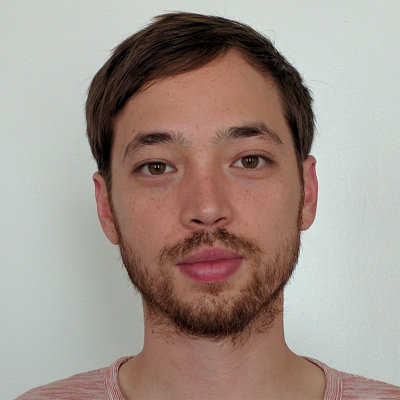
As the co-director of Code For Philly, Chow has helped the local tech organization adapt to drastic changes stemming from the pandemic, including the launch of a fellowship for emerging technologists and continuing to support local coders with remote programming.
“Michael is one of the most level-headed people I have ever met,” his nominator wrote. “We have worked together in an incredibly stressful environment, in which the only reward is karma, and he has never shown anger or anxiety or stress. He has consistently been a resource to his community, never asking for anything in return.”
Paulina Gallo, lead developer, OpenForge

Gallo has worked hard within the software company to bring things like monthly dev-focused check-ins, dev town halls and quarterly dev competitions to the team so they can learn new skills. She is lauded her for her comprehensive understanding of both iOS and Android approaches and being able to provide customers with accurate estimates, as well as always being there for her team.
“More often than not Paulina would be *the* person speaking up on behalf of the dev team to suggest what aspects of our company needed attention, how the team felt during different periods of growth, and what type of growth the individual team members needed,” her nominator wrote.
Shannon Glavin, software engineer, LeagueSide
Glavin has been operating as the sports sponsorship startup’s only engineer throughout the pandemic: “She’s shown tenacity and a high-level of empathy as she’s continued to build a software product for youth sports volunteers and commissioners,” her nominator wrote.
Also importantly, she’s been a strong advocate for social justice both at LeagueSide and externally. Glavin has been working on a hiring process that removes bias from the equation and seeks underrepresented groups in tech, working with orgs like Philly Tech Sistas and We Evolve as well as HBCUs for talent.
Georgia Griggs, VP of R&D, Avisi Technologies
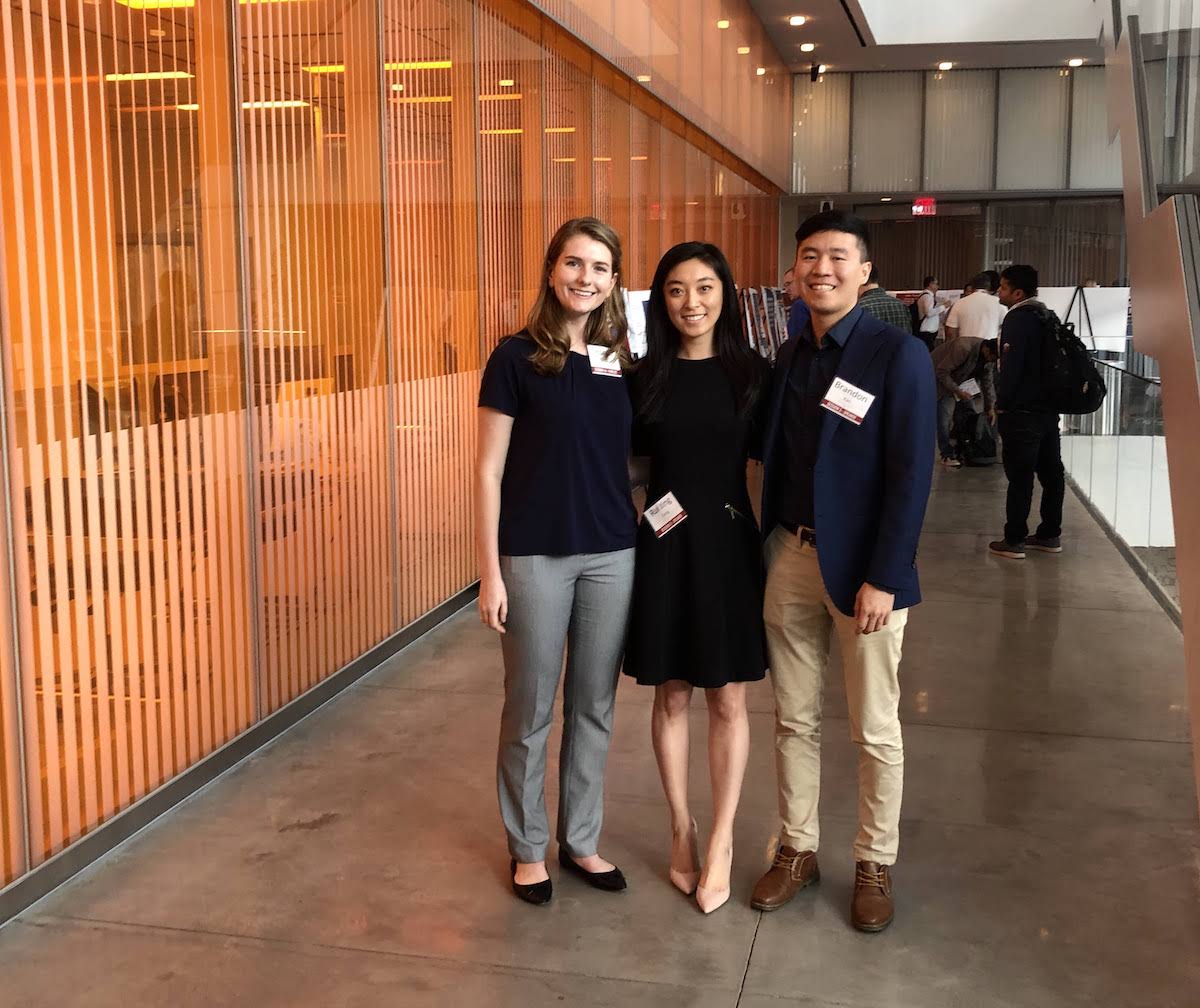
Griggs leads the development of Avisi’s flagship product, VisiPlate, a nanotechnology-enabled implant for treating glaucoma, and her “technical ability allows her to help drive continuous innovation,” her nominator told us. Her leadership bridges the gap between science and tech.
“Beyond her work at Avisi, Georgia has spoken at the Singh Center for Nanotechnology about her career and acts as a mentor for graduate students and budding nanotechnology engineers,” they wrote. “Georgia is an outstanding example of an interdisciplinary female leader in medtech and nanotech.”
Adit Gupta, cofounder, Lula
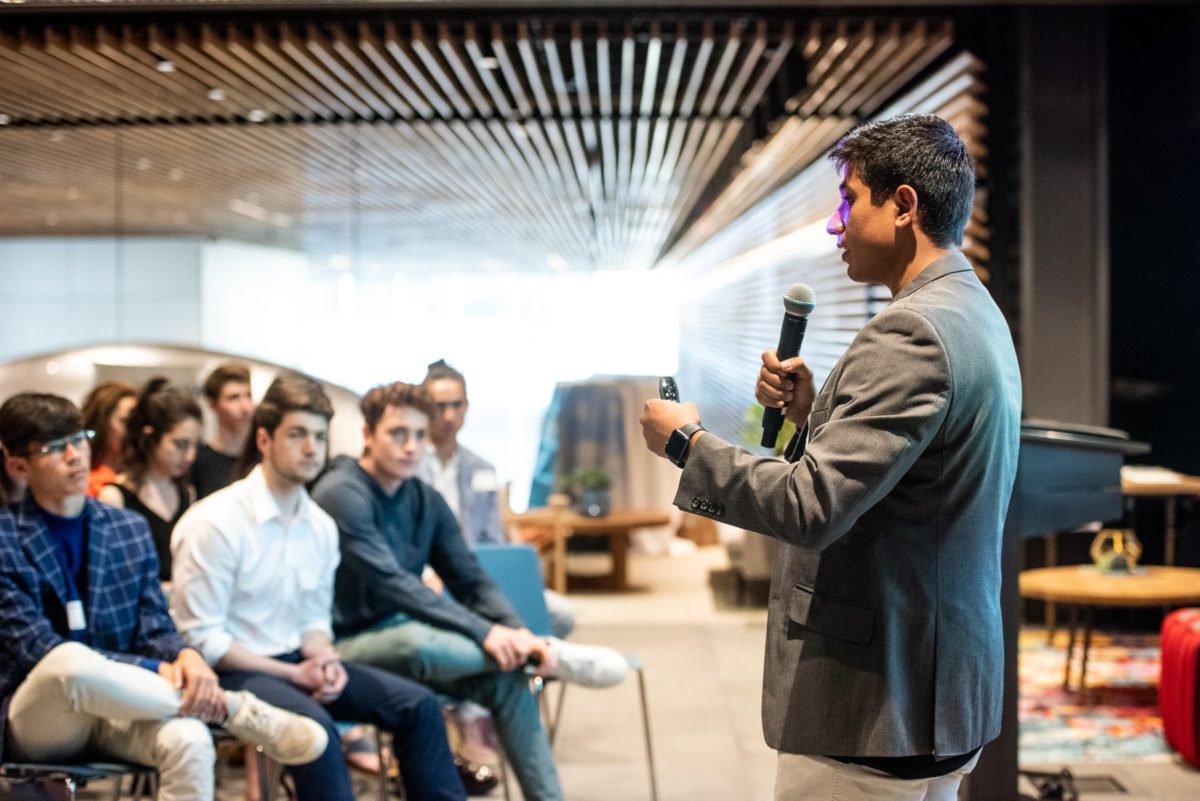
Gupta just launched his second startup and along with his cofounder has built Lula, an eco-focused delivery startup. His nominators called him charismatic and a great communicator as well as an “exceptional technical talent who possesses a business acumen well beyond his years.”
He was also a tech force while in undergrad at Drexel University (he’s now an IT Ph.D.), with a fellow student writing in to share some praises.
“Adit has mentored me and over a dozen other people at Drexel to learn how to code effectively in a startup setting,” they said. “Adit often goes out of his way to leave everything and solve problems together (debugging code, building new tech, etc.). In the past Adit has hosted over 50 workshops within Philly on AI, blockchain, etc.”
Lauren Hallden, lead product designer of growth, Talend

Hallden helped the company in its transition from its days as Stitch, and has worked on user experience design, web design and data visualization for software companies across the region.
“Lauren relentlessly ships delightful and subversive web projects,” a nominator wrote in, like her work on 2019’s Philly Design Census, an anonymous tracker of salary range and titles for designers across the Philly area.
“People are looking to get a more informed viewpoint, and anything we can do to make it not feel like a mystery is great,” she told Technical.ly last year.
Clinton Johnson, solution architect, ESRI

Johnson was a long time IT leader for the City before leaving in 2016 to join ESRI.
“I had always felt it was a part of my duty as a civil servant to help keep the focus on the customer, the everyday Philadelphian,” Johnson wrote to us back when he left his job with the City. It’s about “making the best use of technology,” he said, but also about having empathy for residents.
He’s also the founder of NorthStar, an employee community focused on increasing representation, inclusion and belonging for people of African descent in GIS.
Shayne Moore, VP of IT, PIDC

Moore has led the charge on any and all of PIDC’s tech needs for the last three years, after leading tech teams at a handful of area nonprofits and organizations, including Philadelphia Works and the Food Bank of South Jersey. The Western Governors University graduate was recently honored with a mural in his home neighborhood of Germantown for his professional and personal accomplishments.
“I often say that technology is the same across industries. I’ve worked at nonprofits, worked at large corporations, and the only difference is the budget to which they allow for tech,” Moore told Technical.ly last month. “The tech is often the same, but you might have to be creative in how you accomplish a goal.”
Luis Olivieri, GIS director, Hopeworks Camden

Olivieri brings more than 30 years of GIS experience to his role with Hopeworks, where he introduces young people to the geospatial field and help them find high-wage jobs around the region.
“Luis consistently uses his skills to work with youth to deliver exceptional products and solutions for Fortune 500 companies, including Comcast, American Water, and many others,” his nominator wrote. “More importantly, however, is the way he empowers young people to use GIS technology to solve real community problems. Whether it is building a food access map, or, most recently, working with the Parkside neighborhood in Camden to map streetlight neglect to advocate for better lighting and policing, Luis is always leading young people to use the potent combination of activism and technology to make their communities better.”
Mark Platt, lead engineering architect, Benefits Data Trust
Platt was credited with helping Benefits Data Trust — a national nonprofit using data, policy change, personalized assistance and tech to connect neighbors in need to public benefits — undergo a significant business transformation and helping rethink its digital product architecture and better align its solutions to more effectively fulfill its mission over the last few years.
“Mark has been a driving force in fundamentally changing how we think about our digital solutions, the business domains that define the product scope, and as a result, better position us for success, especially during COVID-19, when our workload increased exponentially due to the high number of people in need,” his nominator wrote.
Mumin Ransom, software engineering manager, Comcast
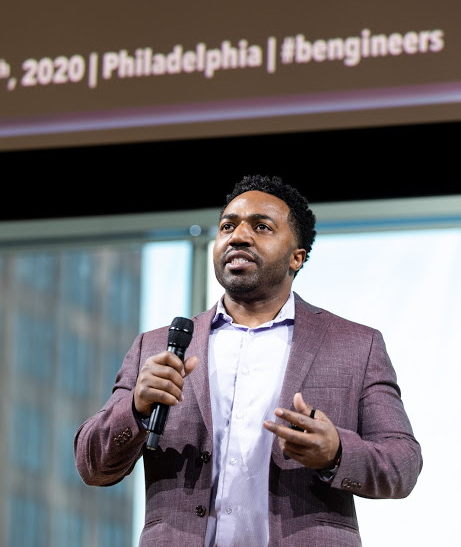
Since 2017, Ransom has worked with others at the telecommunications giant to build BENgineers, an employee resource group designed to help Black engineers support one another with professional opportunities and skill sharing.
“I’m a firm believer that talent is equally distributed; opportunity is not,” he told us last month. “We often say, the vision of the BENgineers was to give a voice for the underrepresented.”
Stacy Rosenfeld, principal engineer, Phrase Health

Stacey began work as principal engineer at Phrase Health in April 2019 after more than four years with Shoprunner. Since then, Stacey has helped developed the company’s ETL pipeline to ingest EHR data and pushed it to Phrase Health’s AWS platform. Stacey frequently collaborates with peers and more junior team members on the engineering team.
“She’s an outstanding engineer and an even better person,” her nominator said. “She’s an A+ performer on the job, but is a joy to be around and even a better mom to her 2-year-old and -six-month-old!”
Matt Schaff, engineer, O3 World

In addition to his daily responsibilities with O3 World, Matt works with two nonprofits.
Invisible Hands began as a spreadsheet that he developed into a system that has allowed volunteers to deliver groceries to New Yorkers through the pandemic. Drive Your Ballot has adapted components of that model into a system connecting Philadelphians to round-trip rides to ballot drop boxes via volunteers.
“Matt is deeply committed to providing opportunities and recognition to colleagues belonging to communities often marginalized within tech companies,” his nominator said. “He always has time to train colleagues on new skills or explain the nuances of a technical issue to help build consensus and mutual understanding among his teams.”
Ernesto Tagwerker, founder and CTO, OmbuLabs
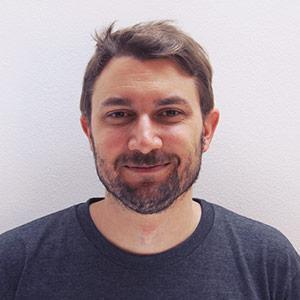
Tagwerker has been co-organizer at Philly.rb since 2018, where he fosters an open environment for Ruby developers to learn and network together. He is an active member of the open source community and has spoken at Ruby Kaigi, RubyConf, RailsConf and Philly.rb, and has been proactive in helping companies improve code, particularly older code.
“He has built his company OmbuLabs to be fully remote since 2016 and to follow a list of values that creates an open and positive workplace for all while working with startups and huge companies such as Snap Inc.,” his nominator said.
Shahrukh Tarapore, head of engineering, Arcweb Technologies
Tarapore leads the technical work at the custom software company. He also oversees his team’s skill development and supports the sales, operations and design teams to ensure delivery success. Catch a glimpse of his work on the 2017 app that can predict weather delays for SEPTA Regional Rail travelers.
“His ability to translate real business needs into a technical spec, then execute on the plan, is a rare skill and one that he has perfected to a tee,” a former collaborator wrote on LinkedIn.
The 2018 Leadership Keepers alum has also served on Ben Franklin Technology Partners’ Technology Advisory Committee and as chair of the Investment and Capacity Building Committee of Social Venture Partners Philadelphia.
Ashley Turner, learning experience designer, Swarthmore College
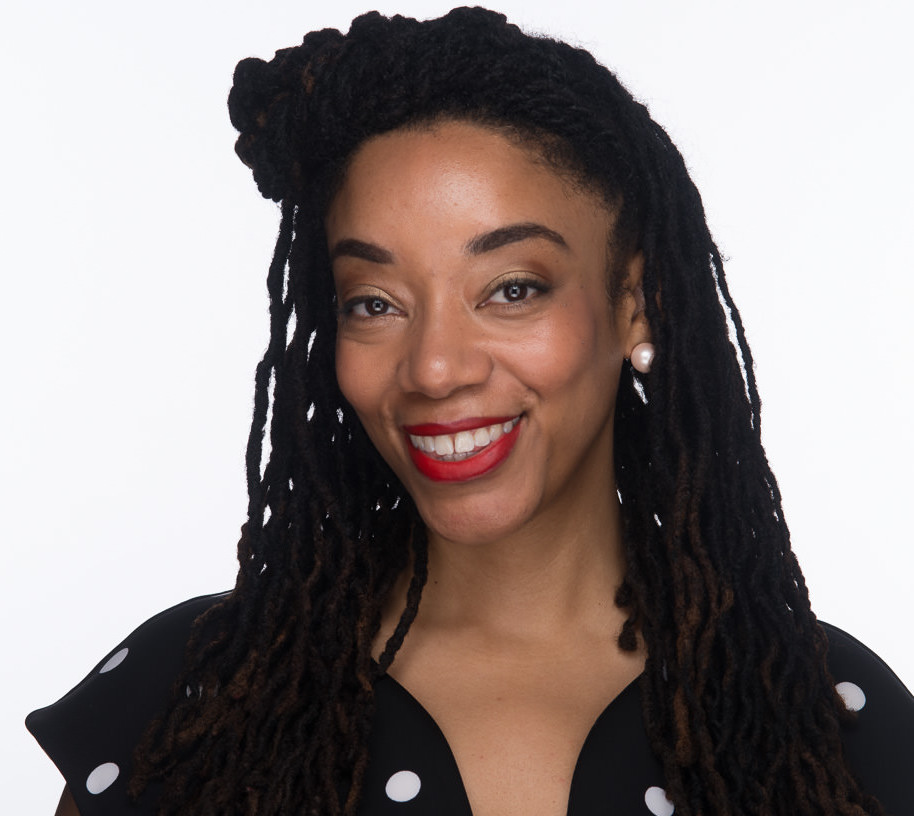
She’s been named our 2019 Impact Leader of the Year and to our 2020 RealLIST Connectors for her work leading Philly Tech Sistas, the women-of-color-focused tech org bringing accessible tech training and networking to the area for the last few years — including virtually throughout the pandemic.
Turner is also a full-time academic technologist at Swarthmore, where she “trains faculty, staff, and students on learning technology software and shows them how to use these tools in more meaningful ways.” She’s also active in the Women of Color at Swarthmore employee resource group, and you can catch her speaking about how to advance racial equity beyond the how-did-we-get-here conversations.
Matthew Weiss, director of engineering, NeuroFlow

NeuroFlow has had steady growth since its founding in 2016, and much of that product scaling has been thanks to Weiss, his nominator told us. The NeuroFlow platform was built with Python, React and Swift, and supports complex automation and AI processes, they said.
“He’s seen the product mature from an application with a single log in per day, to a versatile technology solution utilized daily by both patients and clinicians across the country and in other parts of the world,” the nominator wrote. “His leadership of the team’s architecture rework has been instrumental to the last two years of rapid growth. The product is more intuitive, sophisticated, and can better anticipate the needs of users — clinical professionals who assess and track the mental/behavioral health of their patients.”
Molly Yochum, engineering manager, Betterment

Yochum’s nominator credited her for having a huge impact on the growth of Betterment by implementing industry best standards for a financial portfolio creation, helping move its business model from asset-based to SaaS pricing, writing code that generated half of its new B2B leads and implementing a complete redesign of one of the company’s apps. She also serves as president of the internal women-in-tech employee strategy resource group.
“I’ve worked with dozens of Philly engineers at various companies and Molly Yochum is the one you should keep an eye on,” her nominator wrote. “Her talent, attitude, and productivity are leagues above the average engineer.”
_
This story includes additional reporting by Technical.ly Philly reporter Michael Butler.







